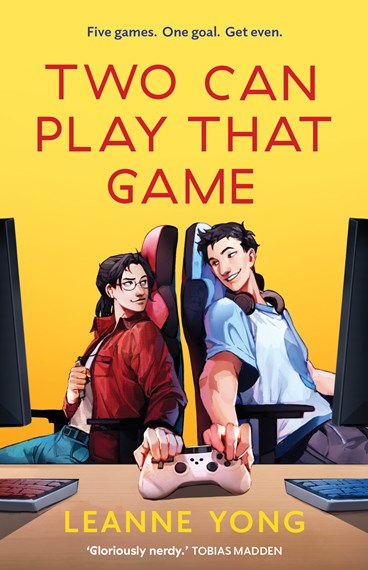Two can play that game by Leanne Yong

A novel for gamers, this story centres around a competition between two young gaming enthusiasts to win a ticket to an exclusive Art of Game Design workshop held in a major pop culture convention. For Sam Khoo it is the chance to learn from the experts and showcase her own game design, and maybe win a sponsorship. For Jay, it would be a present for his talented art and gaming enthusiast brother Ansen. The ticket is actually part of a special buy from GamesMasters, but Sam and Jay grabbed the kit at the same time, and so after some dispute, they decide to undertake a 5 game challenge, with the winner keeping the workshop ticket.
Leanne Yong is an escape room creator who has designed internationally recognised games, so has inside knowledge of the gaming world. Readers who are into computer games will enjoy the descriptions of the different gaming challenges that Sam and Jay take on. And readers who like some romance will enjoy the familiar enemies to friends trope.
The extra layer to Yong’s story is the portrayal of the whole Asian-Australian family dynamic, and the parental expectations of excellence and success. Sam and Jay are both from Chinese Malaysian families, where their every move is monitored and commented on, often leading to humorous scenarios. Similarly, the sibling rivalry in each family, between the good older child and the rebellious or more demanding younger one, is given a very realistic rendition.
But the thing that really carries the novel along, is the sparring dialogue between the two antagonistic teenagers, each master of the perfect come-back line. Their conversation and their text messages become another kind of combat, each trying to outsmart the other - which only makes it more poignant when moments of true friendship and kindness break through.
A thoroughly enjoyable novel about competition, individual passion, and family expectations, Yong’s novel about gamers shares some themes with Comer’s Grace notes about teenagers trying to follow their passions in the face of conflicting parental expectations. Both novels emphasize open and honest communication, because in the end families and friends do care about each other.
Themes: Asian-Australian families, Computer games, Competition, Ambition, Friendship.
Helen Eddy